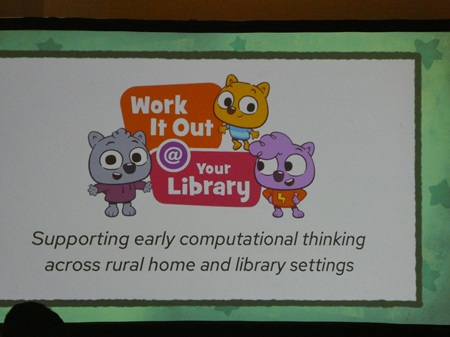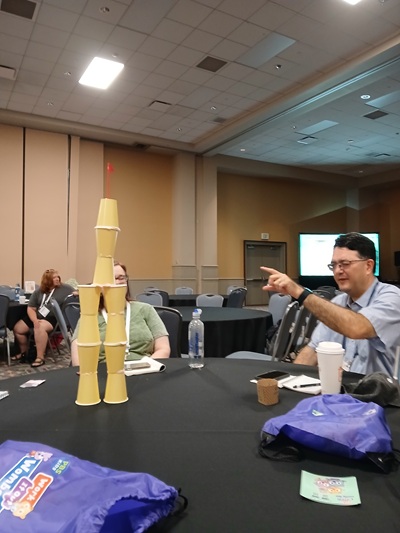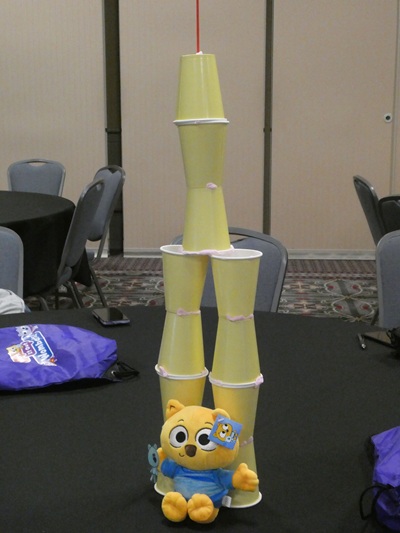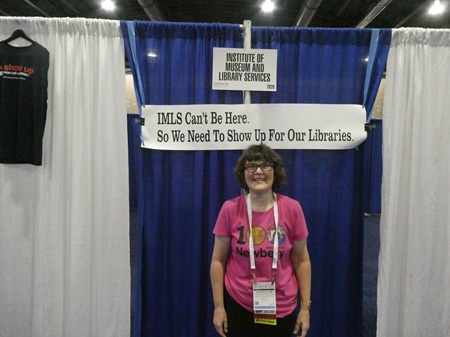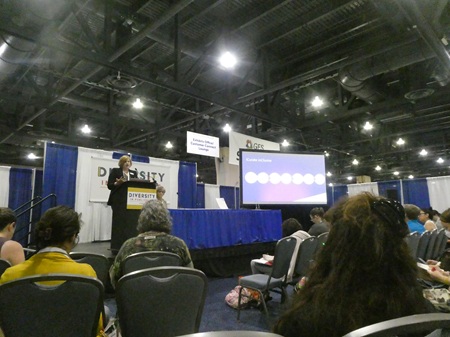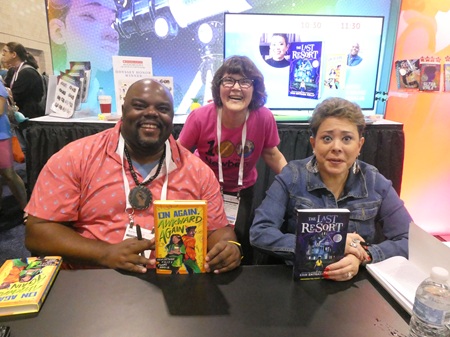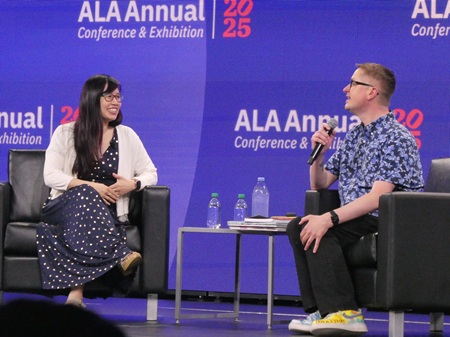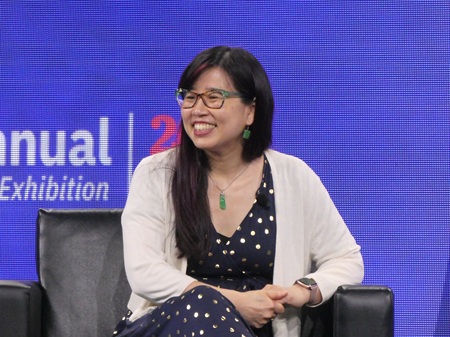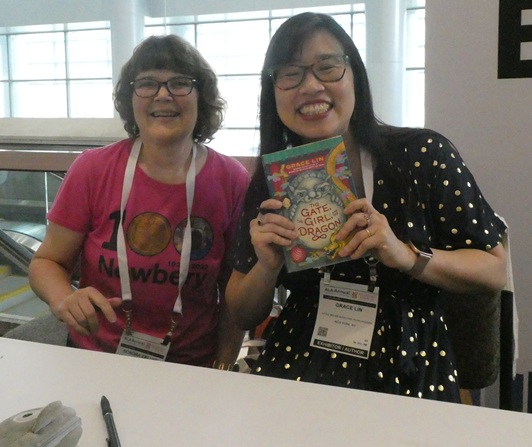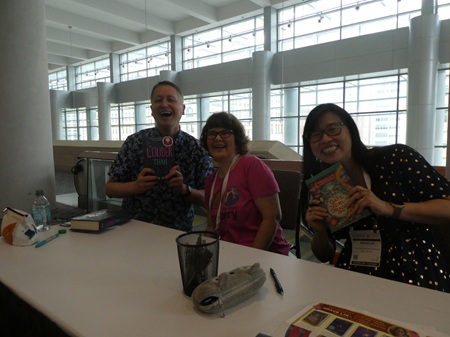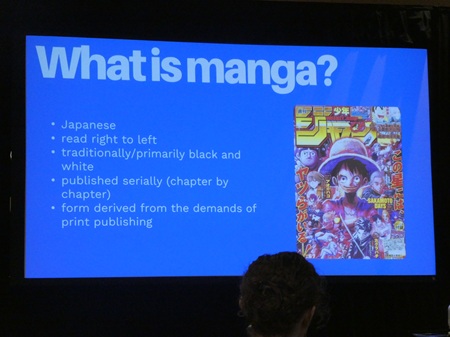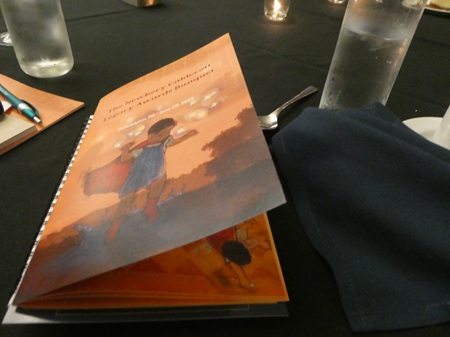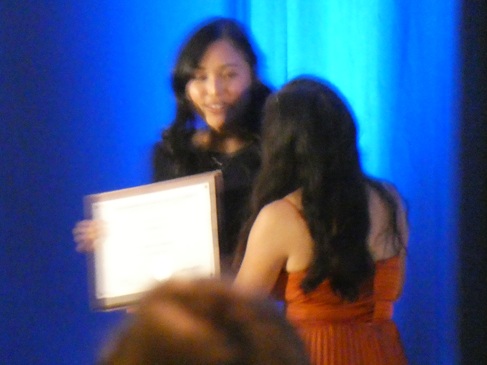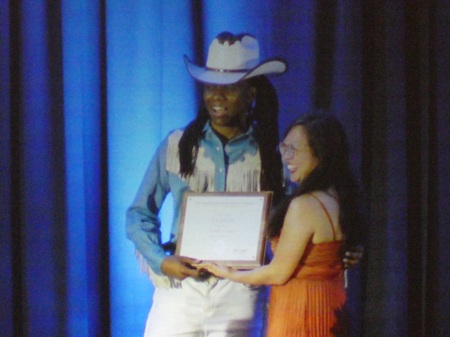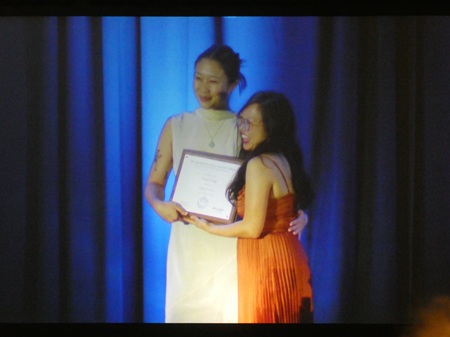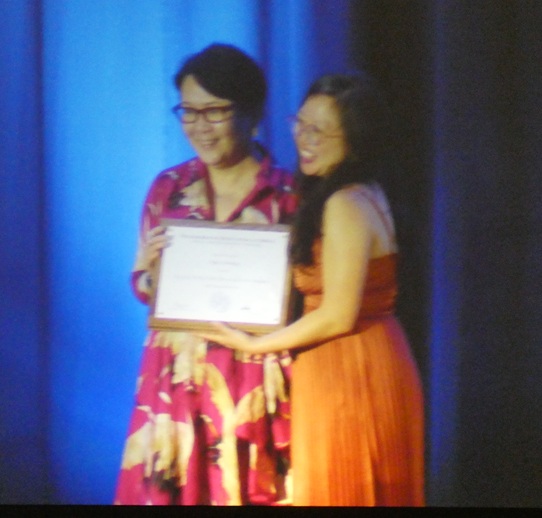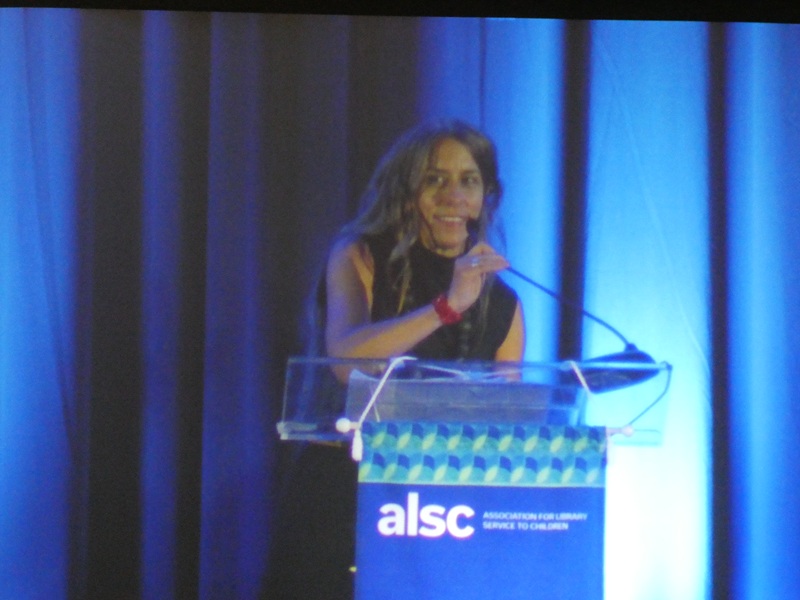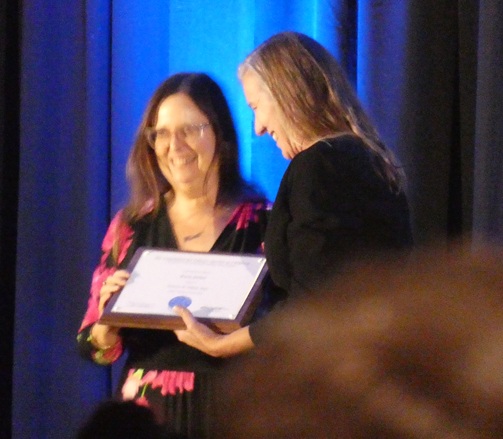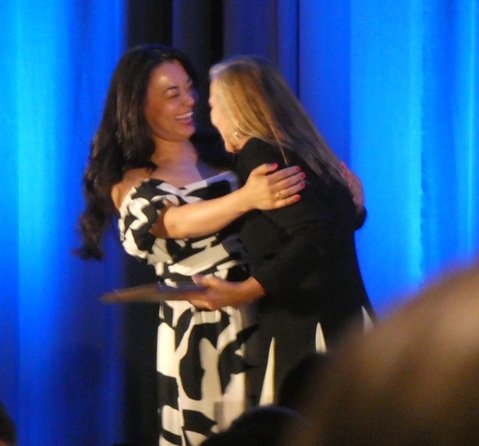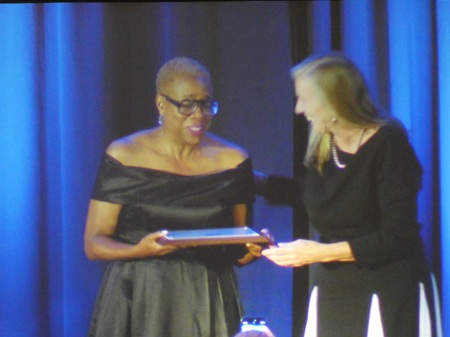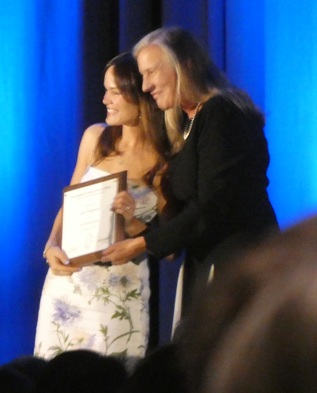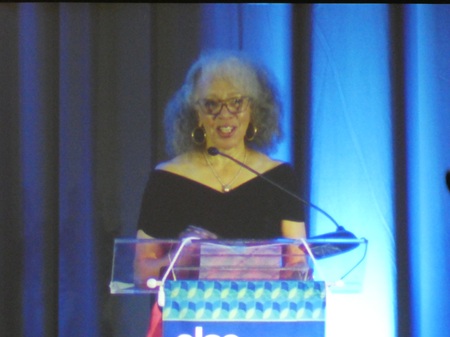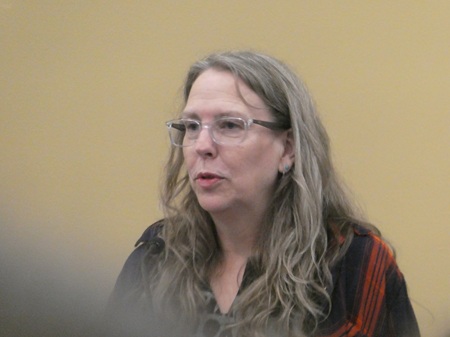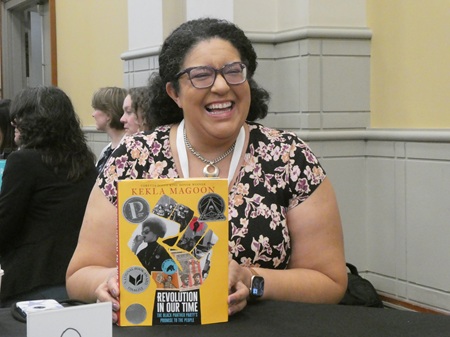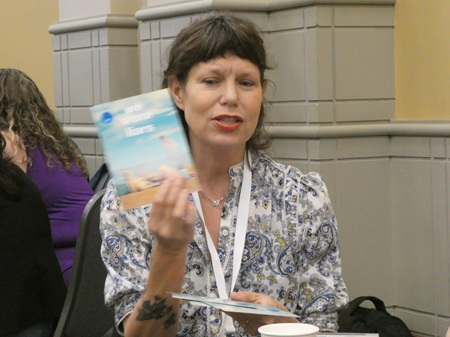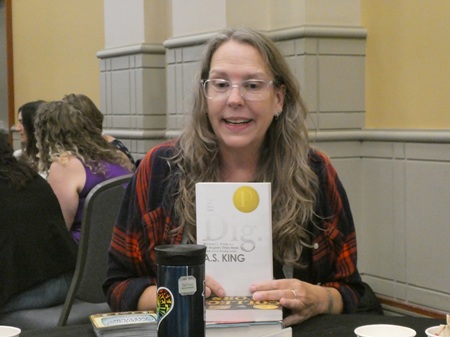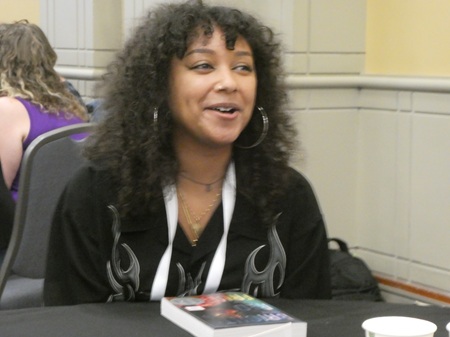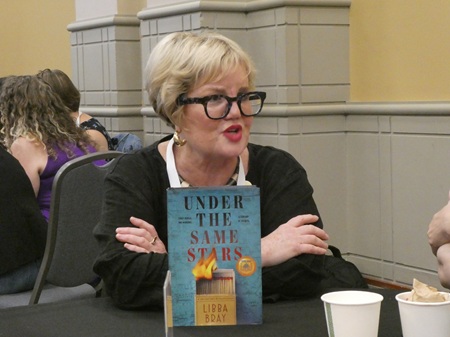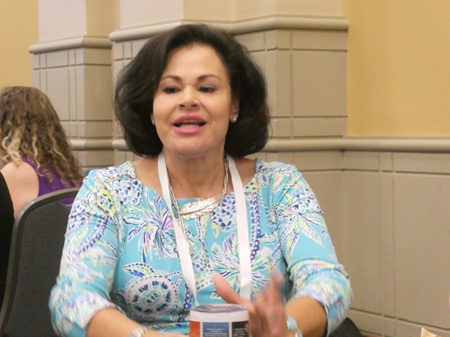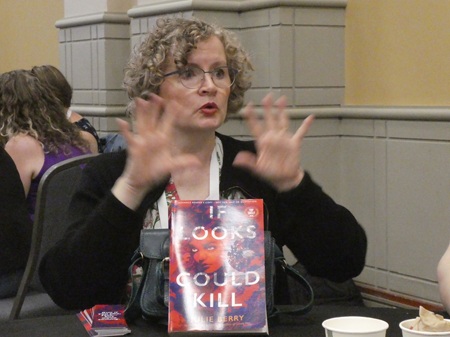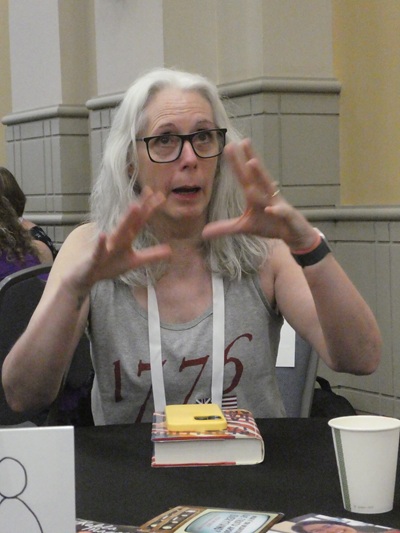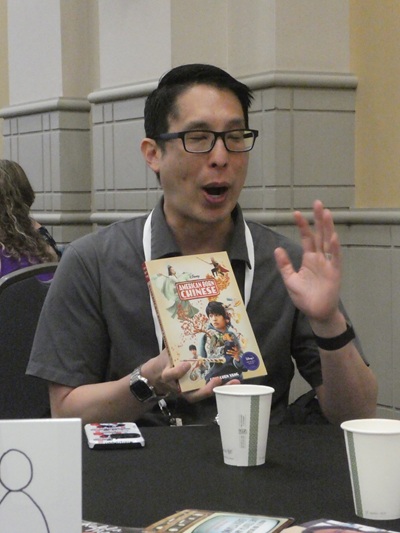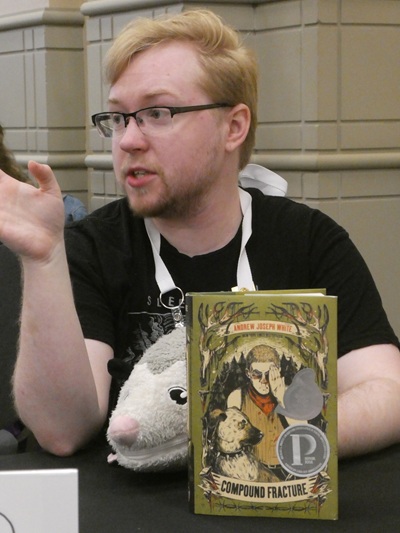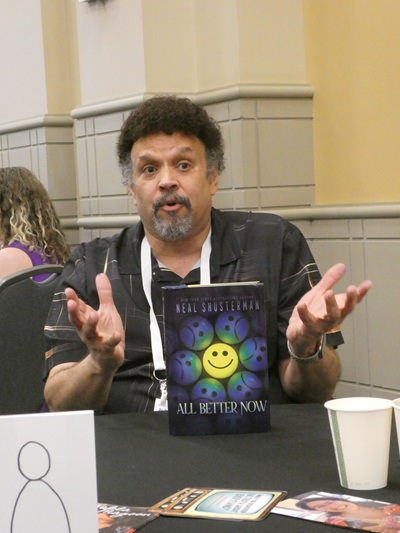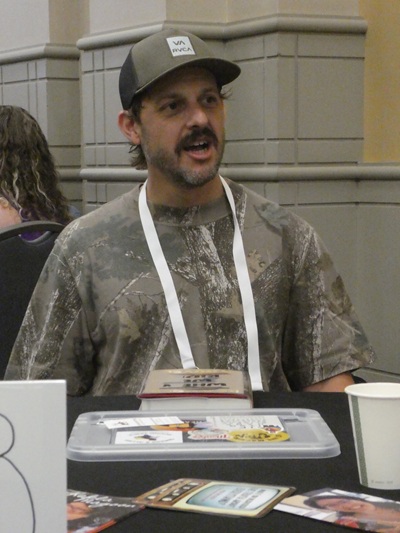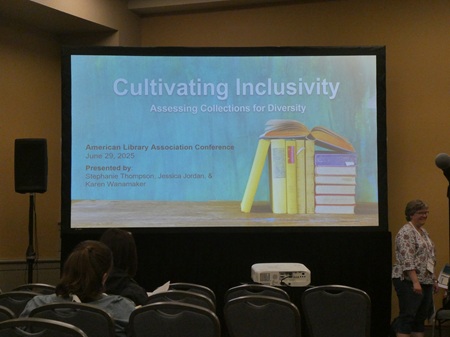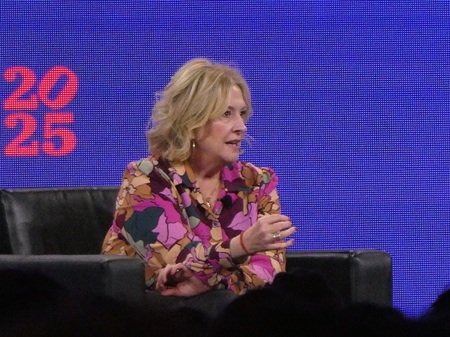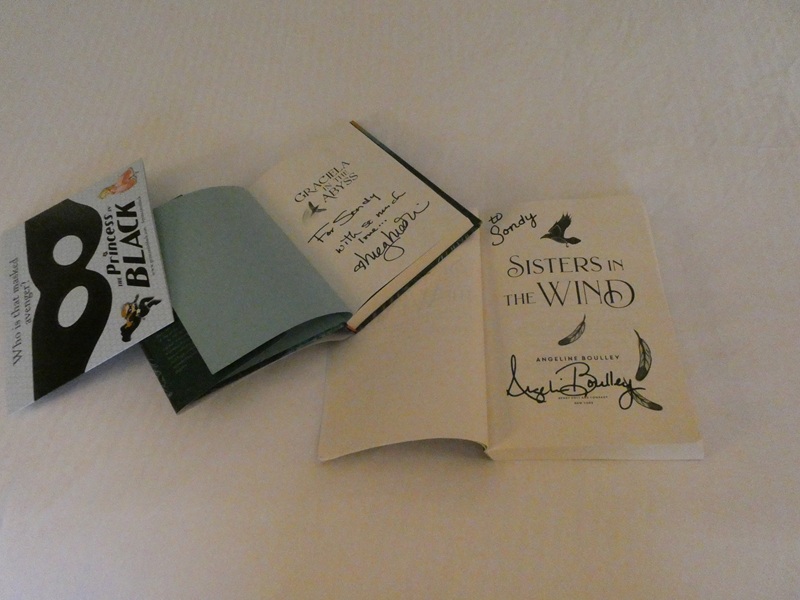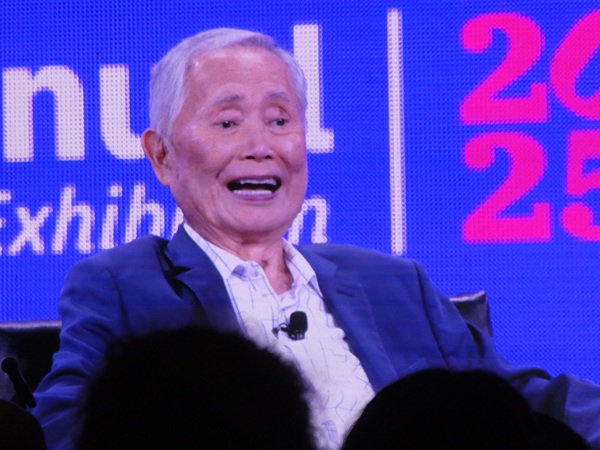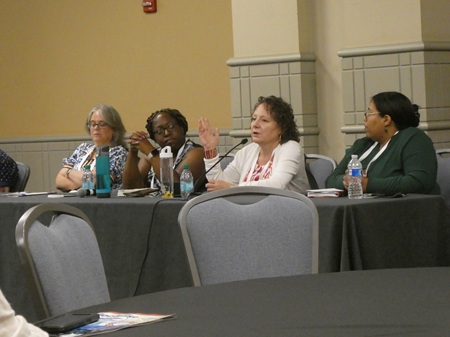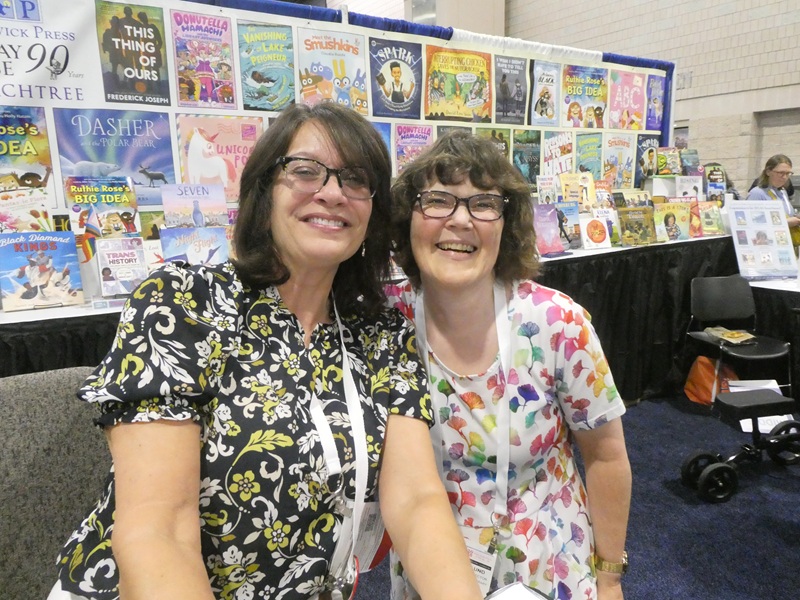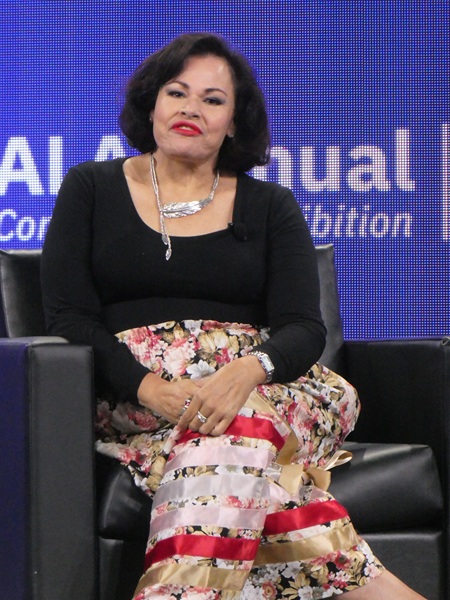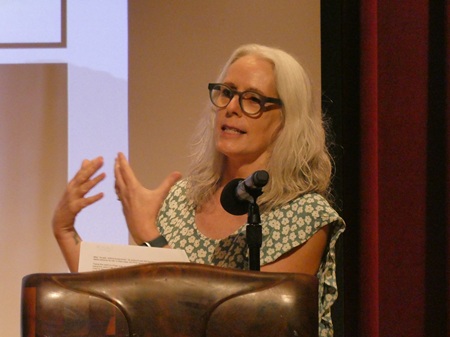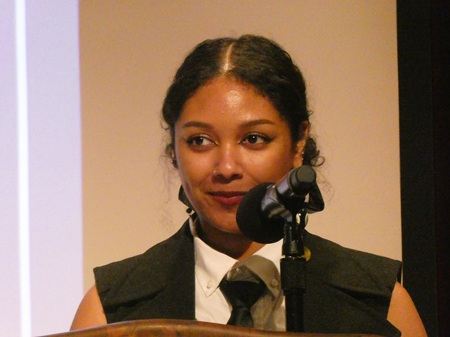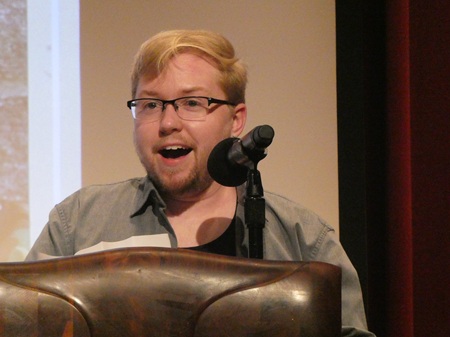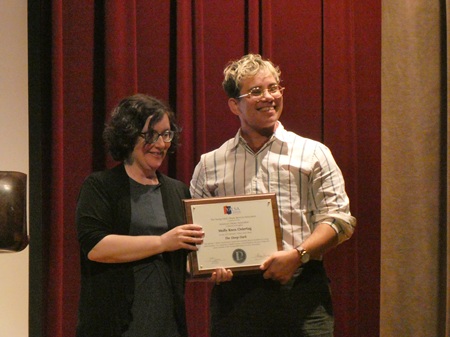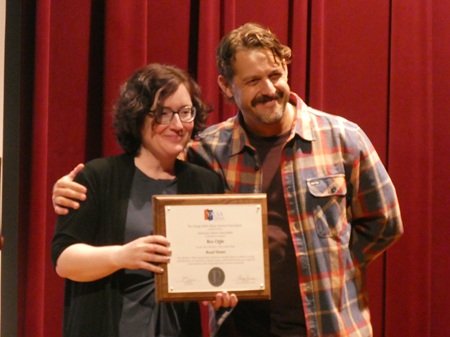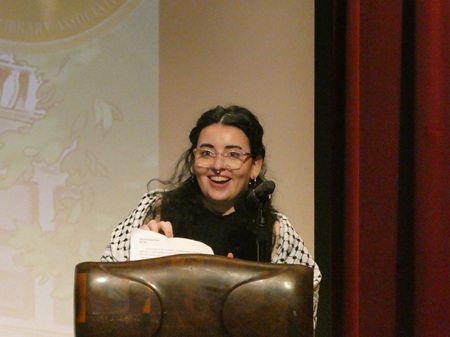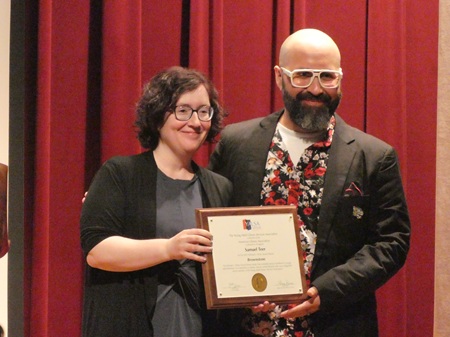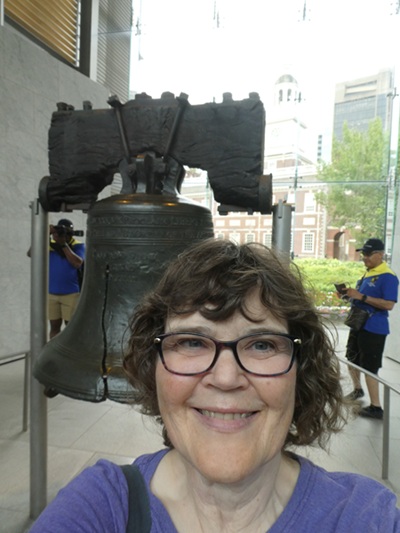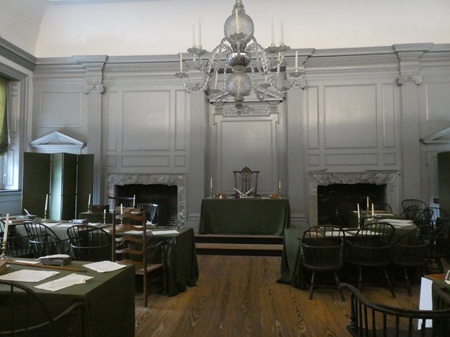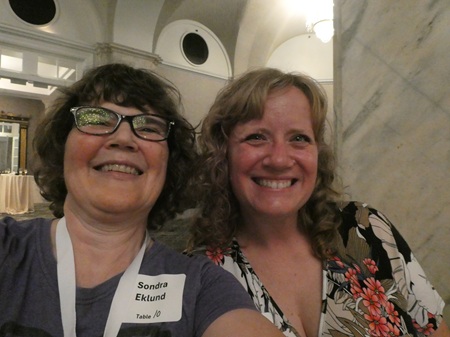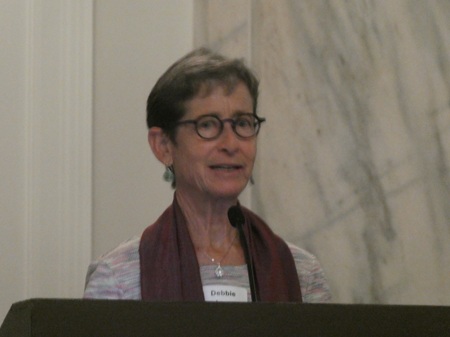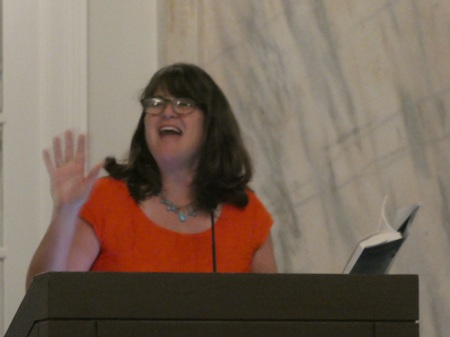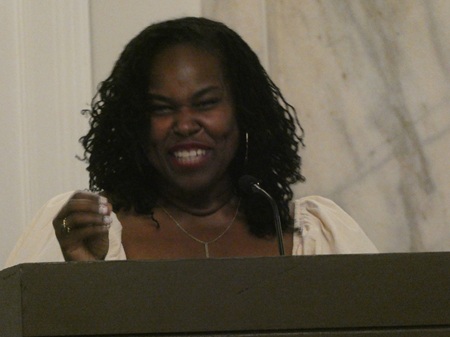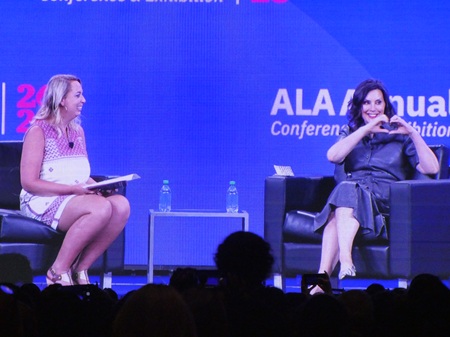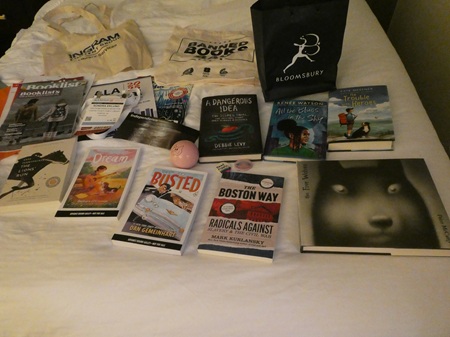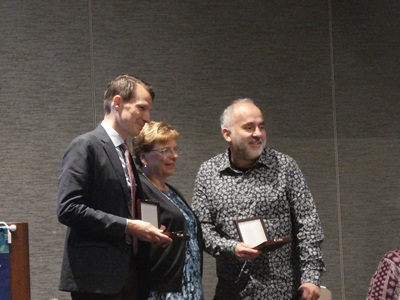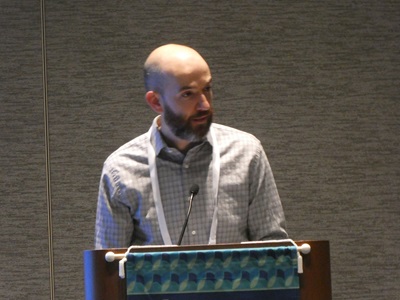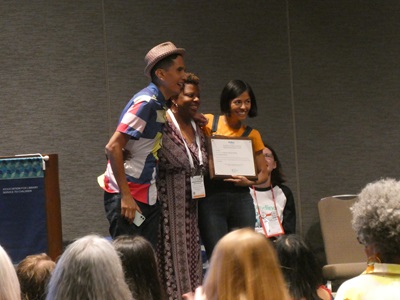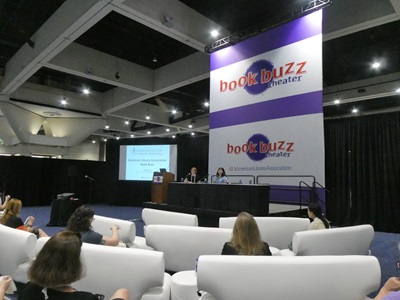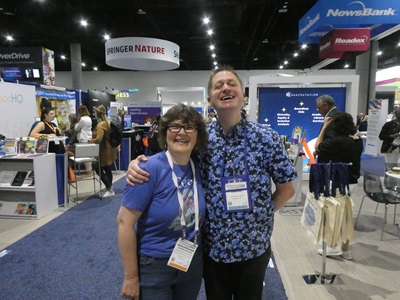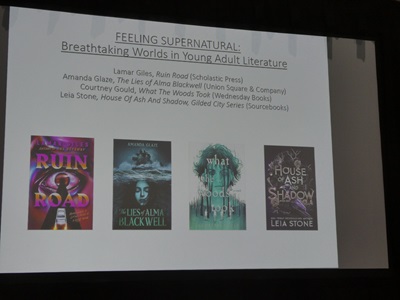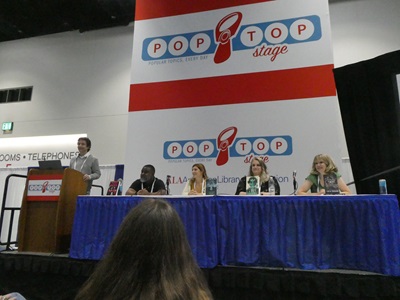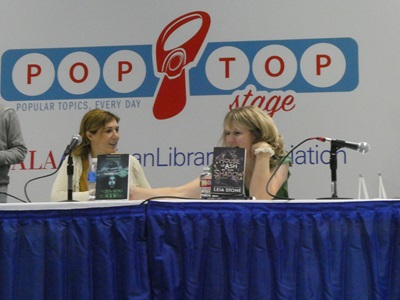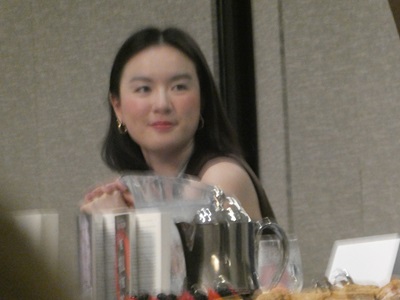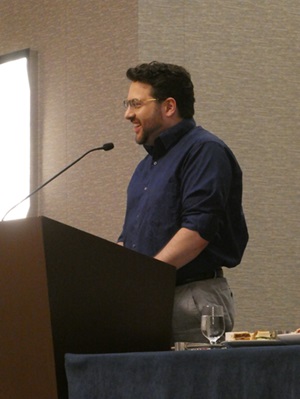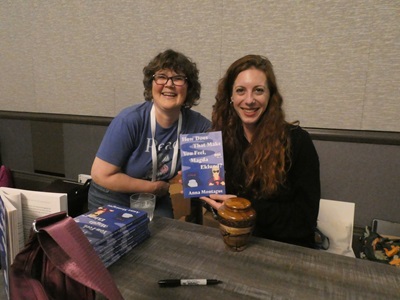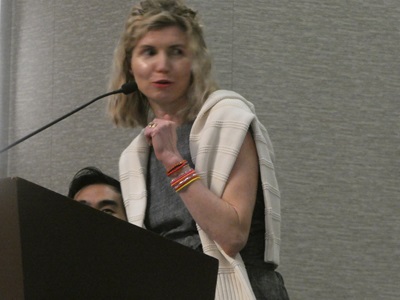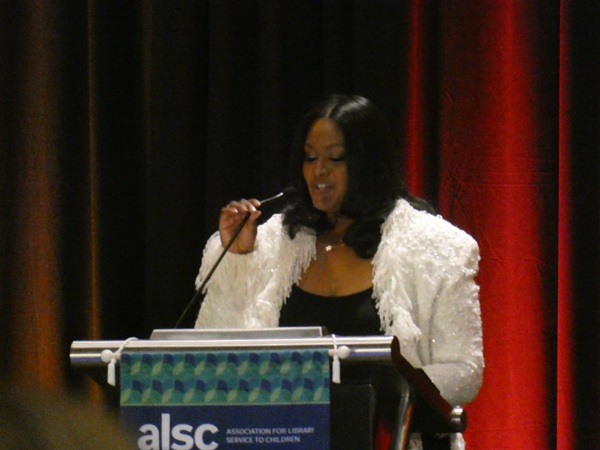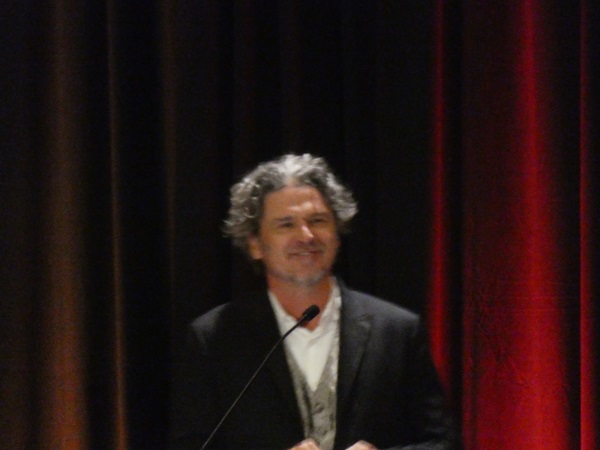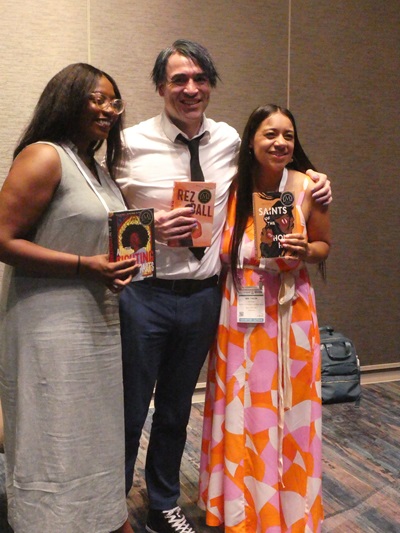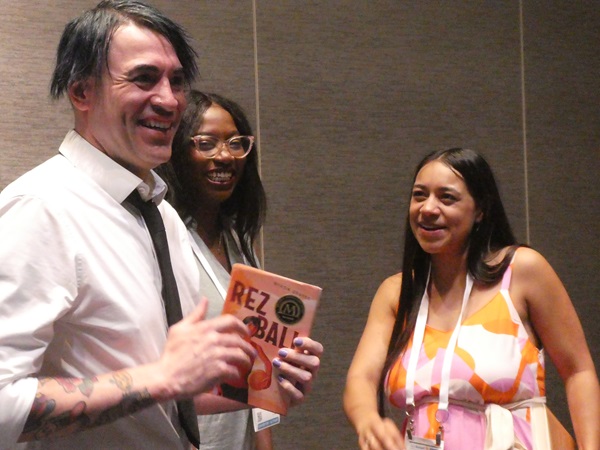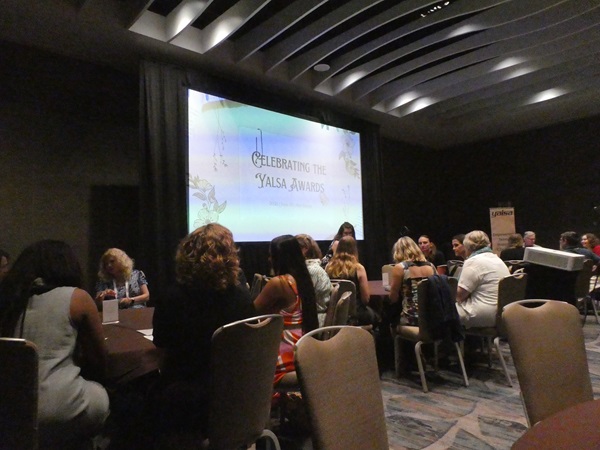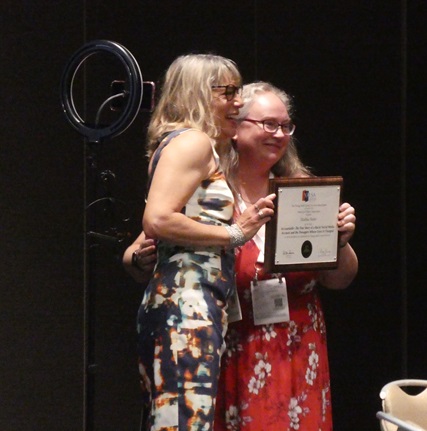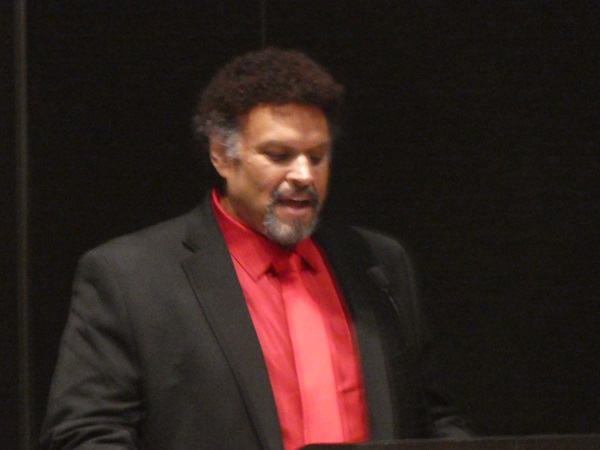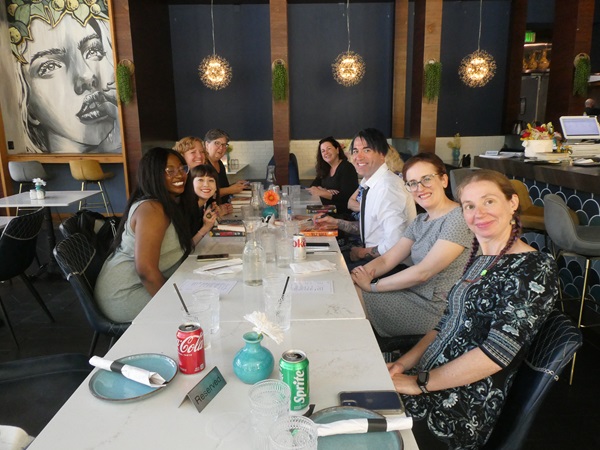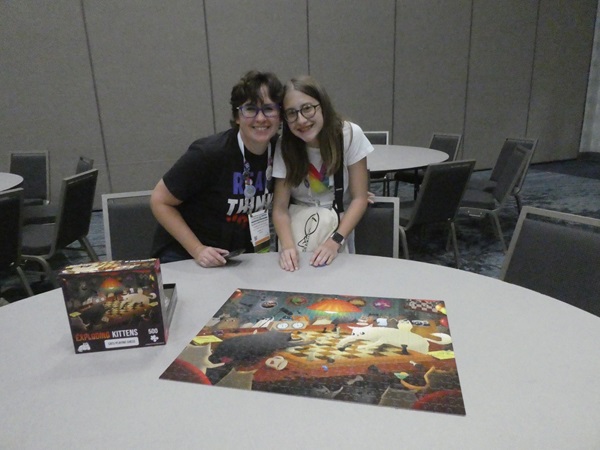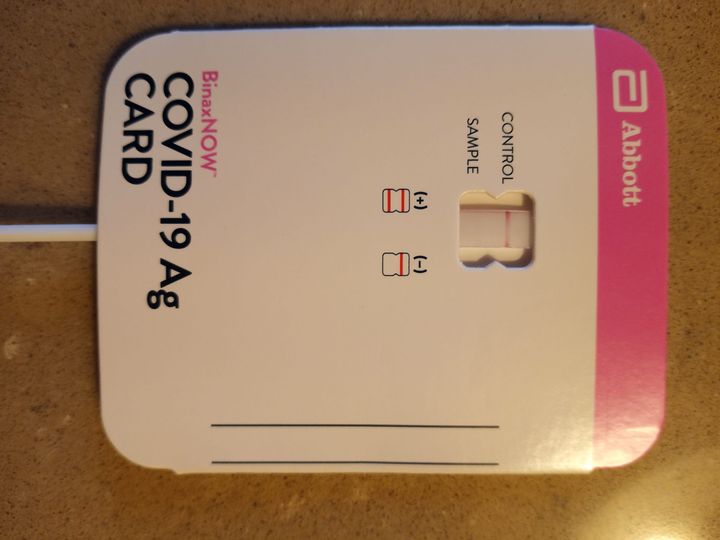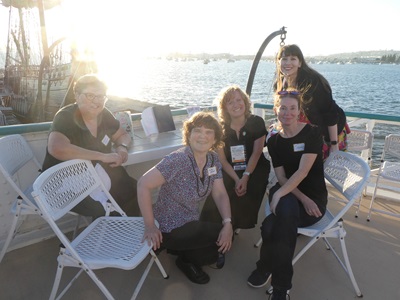Final Day – ALA Annual Conference 2025
Monday, June 30 was the final day of the American Library Association Annual Conference in Philadelphia, which my own library generously paid for me to attend. And the first session I attended that day, my own library director, Eric Carzon, was also attending.
It was about the program Work It Out @ Your Library, based on the PBS show Work It Out Wombats. The program is designed for families and supports early Computational Thinking. I saw that and thought Math, but they meant step-by-step thinking which builds into learning to code.
The program sounds fantastic, and PBS has library facilitator guides and presentation decks, which you can find at pbslearningmedia.org. It’s designed as four 3-week units, and there’s a separate section for parent resources.
Libraries are uniquely designed to bring this to families, and they used a Library Working Group to develop it. There’s a free family app that families who enroll in the program can use. Once you download the app, it doesn’t access the internet. If you take pictures of your kids solving a challenge, the app makes a video out of the pictures.
And then, of course, we tried out one of the activities on the app – building a castle from cups.
Eric was the “parent” at our table who took pictures.
Our finished castle:
After that program, I spent some concentrated time in the exhibits – for the first time, I finally walked all the aisles, one by one.
This meant I spent some money! I was charmed with a “Read More Books” t-shirt and matching earrings from Lyanna’s Closet. Looks like the website is more geared for teachers – but she had plenty of library gear for ALA!
I also loved the MoMath (Museum of Mathematics) booth and purchased some Hypercube earrings (I went to a seminar about hypercubes in grad school) and had fun talking with the woman at the booth.
I learned that MoMath is sponsoring 2026 as the Year of Math and is curating program ideas for libraries! I am no longer a programming librarian, but you can be sure that I signed up for the Year of Math Librarians’ Notification List.
There was a very sad booth, where IMLS had purchased a booth – but then with cuts to their budget, was not allowed to travel to attend.
I also attended a program in the Exhibits presented by Ingram about their diversity audit tools, InClusive and InCremental. InCremental is a follow-up tool to see how you’re doing in your goals of having a more inclusive collection. All their diversity audit tools compare against public libraries in general so that it takes into account what is available. With the follow-up tool, you can see if you’re making progress.
I got a book signed by Kwame Mbalia and Erin Entrada Kelly!
Another very helpful booth was one by The FIRE – The Foundation for Individual Rights and Expression. They started out defending students’ rights to free speech, and now they want to be there for librarians who get challenged for the books they put on library shelves. I hope I will never need their help, but it’s super good to know they’re out there!
After the exhibits, I went to a Main Stage event where Grace Lin was being interviewed by John Schu.
They did fun getting-to-know you questions and talked about her new book, The Gate, the Girl, and the Dragon. Some notes:
“Libraries are the places where book lovers are made.”
Grace showed her Idea notebook, where she scribbled down ideas. She showed pictures of her Japanese derumi dolls – they come without eyeballs drawn in. You make an eyeball when you make a wish, then the other when it comes true. She uses these for her books.
Grace said there are so many beautiful books, she’ll ask herself if the world needs another book from her. She doesn’t know, but she needs to give the world another book.
She’s been friends with her editor Alvina Ling since she was 10 years old. They do a podcast together called Book Friends Forever.
She based The Year of the Dog on herself: Her Chinese name is Pacy. It’s about the year she met Alvina, who is Melody in the book.
She talked about all her past books. I liked it when she said she always wanted Caldecott Honor but didn’t have the confidence to admit it.
The Gate, the Girl, and the Dragon is an Asian-American The Lion, the Witch, and the Wardrobe. The Chinatown gate is a portal to another world. One of the spirits comes to our world. Gongshi are good spirits who live in statues – their job is to help people.
She talked about loving books of fairy tales as a child. Her mom sneaked a Chinese fairy tales book onto their living room shelves. She indeed read it, but they weren’t very well done, and the pictures were lousy. So she makes her own books as beautiful as possible, so children will not think that Chinese stories are inferior. A book is something to treasure.
John said, “When we read together, we get a biological jolt of empathy.”
Grace responded that middle schoolers suddenly get jaded. Suddenly “Earnest” is a bad word. She wants to show that being earnest is a beautiful trait. She wants to share earnest books.
Of course I got books signed at the end!
The final session I attended was called “Manga, Manhwa, and More” – I got a good rundown on different kinds of Asian comics and some of the tropes and titles to watch for. This will be valuable reference! (I’m going to check the notes and see which ones my library has and which we still need.)
And it all added up to an excellent year at ALA Annual!
